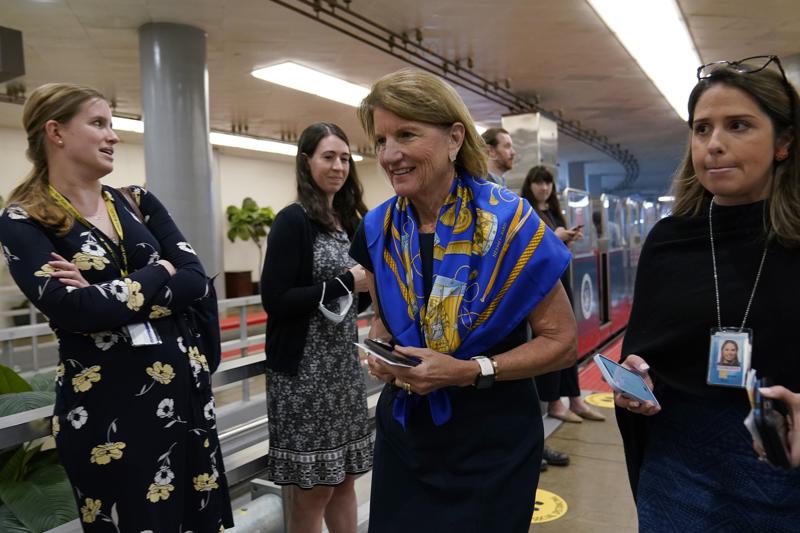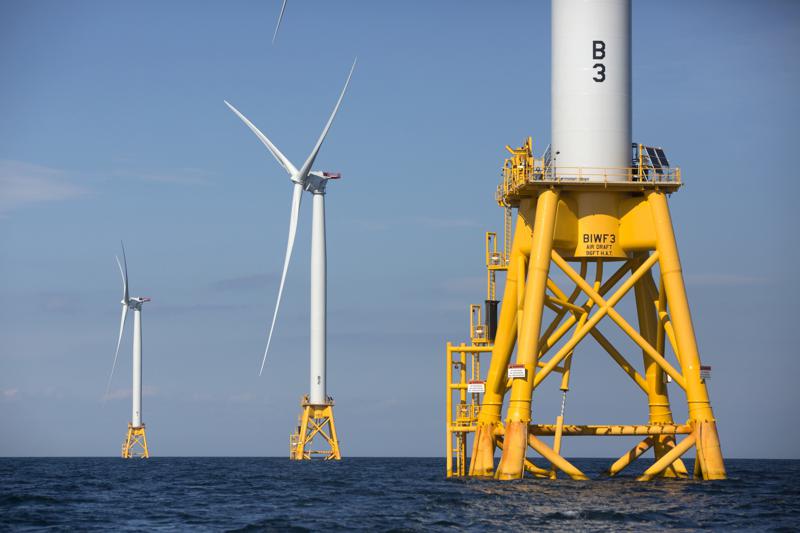Court blocks Alabama city from approving processing plant

A judge has blocked the city of Gadsden from approving the construction of a plant where scores of truckloads of dead chickens would be delivered daily for a processing operation that opponents say would be a smelly, dangerous nuisance. Etowah County Circuit Judge George Day sided with critics of the plant on Monday and issued an injunction to stop the development project by Colorado-based Pilgrim’s Pride Corp. near the city airport, The Gadsden Times reported. A trial scheduled for July would decide whether the ban remains in place or work can move ahead on the rendering plant, which has been the subject of vocal community opposition since the plans became public last year. Located near homes, schools, and at least one church, the plant would receive 120 truckloads of dead chickens and chicken parts around the clock each day for processing into animal feed, the judge wrote. Aside from traffic and the potential foul smell, the operation could pose a hazard to airport operations, critics contend. Day wrote that he was aware of the need to bring new jobs into the northeast Alabama community following the shutdown of a Goodyear tire plant, but the economic interest has to be balanced against the rights of people in the area. Republished with the permission of the Associated Press.
Joe Biden ends GOP infrastructure talks, starts new negotiations

President Joe Biden ended talks with a group of Republican senators on a big infrastructure package on Tuesday and started reaching out to senators from both parties in a new effort toward bipartisan compromise, setting a summer deadline for Congress to pass his top legislative priority. The president is walking away from talks with lead Republican negotiator Sen. Shelley Moore Capito after the two spoke Tuesday, but would welcome her in the new bipartisan group, according to an administrative official who spoke on condition of anonymity to discuss the private negotiations. At the same time, with anxiety running high as time slips by, Democrats are laying the groundwork to pass some or all of the ambitious package on their own. Biden conferred Tuesday with House Speaker Nancy Pelosi and Senate Majority Leader Chuck Schumer about launching the budget resolution process for Senate votes in July, the White House said. “The President is committed to moving his economic legislation through Congress this summer, and is pursuing multiple paths to get this done,” White House press secretary Jen Psaki said in a statement. The breakdown comes after weeks of prolonged infrastructure talks between the president and Capito as the two sides failed to broker the divide over the scope of Biden’s sweeping infrastructure investment and how to pay for it. The Republican senators offered a $928 billion proposal, which included about $330 billion in new spending — but not as much as Biden’s $1.7 trillion investment proposal for rebuilding the nation’s roads, bridges, highways and other infrastructure, including Veterans Affairs hospitals and care centers. Biden has proposed raising the corporate tax rate from 21% to 28%, a nonstarter for Republicans, and rejected the GOP senators’ suggestion of tapping unspent COVID-19 aid money to fund the new infrastructure spending. In a statement, Capito said she was disappointed Biden ended the talks, but also expressed interest in ongoing bipartisan work. “While I appreciate President Biden’s willingness to devote so much time and effort to these negotiations, he ultimately chose not to accept the very robust and targeted infrastructure package, and instead, end our discussions,” she said. “However, this does not mean bipartisanship isn’t feasible.” As Biden aims for a compromise deal, he has begun reaching out to other senators, including Republican Sen. Bill Cassidy of Louisiana and two key centrist Democrats, Joe Manchin of West Virginia and Sen. Kyrsten Sinema of Arizona, whose votes will be crucial in the evenly split Senate. Those senators receiving phone calls from Biden are engaged in bipartisan talks, and a bipartisan group with Sen. Mitt Romney, R-Utah, was meeting later Tuesday at the Capitol to negotiate a fresh proposal. Psaki said the president urged the senators to continue their work “to develop a bipartisan proposal that he hopes will be more responsive to the country’s pressing infrastructure needs.” Biden tapped Cabinet and White House aides to meet with the senators in person. With the narrowly split House and the 50-50 Senate, the White House faces political challenges pushing its priorities through Congress with Democratic votes alone. Biden’s party holds a slight majority in the Senate because Vice President Kamala Harris can break a tie. The special budget rules could provide Biden with an alternative path, particularly in the Senate, because they allow legislation to be approved with a 51-vote threshold, rather than the 60 votes typically needed to advance a bill past a filibuster — in this case, led by Republicans against the Biden package. Democrats are watching warily as time passes and anxiety builds toward an agreement, with many lawmakers worried they are not fulfilling their campaign promises to voters who put the party in control of Congress and the White House. During a private discussion of Democratic senators at lunch Tuesday, there were differing views over whether they should keep talking with Republicans or pursue an approach that would allow them to pass a bill on their own, through the budget reconciliation process. Schumer told reporters afterward that Democrats are pursuing “a two-path approach.” The bipartisan talks led by Sinema with the other senators are underway, Schumer said, while the budget committee is preparing the legislation that would allow passage through the reconciliation process. “It may well be that part of the bill that is passed will be bipartisan, and part of it will be in reconciliation,” he said. “But we’re not going to sacrifice bigness and boldness.” The president is expected to engage with lawmakers while he sets out this week on his first foreign trip for an economic summit of the Group of Seven industrialized nations in Europe. Ahead of Biden’s announcement, the White House had also spoken to other lawmakers, including from the House. Rep. Josh Gottheimer, D-N.J., and Rep. Brian Fitzpatrick, R-Pa., the co-chairs of the bipartisan Problem Solvers Caucus, spoke late Monday with Brian Deese, director of the White House National Economic Council, about bipartisan efforts to reach an infrastructure deal, according to an aide who spoke on condition of anonymity to discuss the private conversations. Gottheimer is also working with Cassidy and Sinema from the senators’ group, the aide said. Republished with the permission of the Associated Press.
Interior Dept. gauging interest in Gulf of Mexico wind power

President Joe Biden’s administration wants to know whether offshore wind companies want to move into the Gulf of Mexico. The agency that oversees offshore leases will publish a request for interest Friday in the Federal Register for areas off Louisiana, Texas, Mississippi, and Alabama, the Interior Department said Tuesday. Those areas are largely in shallower waters where many wells have played out rather than the deep seas where the Gulf’s offshore oil and gas industry is now focused. Biden has said he wants enough wind-generated electricity for more than 10 million homes nationwide by 2030. Offshore wind development has the potential to create tens of thousands of good-paying, union jobs across the nation, said Interior Secretary Deb Haaland. Her agency’s request for interest from developers “is an important first step to see what role the Gulf may play in this exciting frontier,” she said. “The Gulf of Mexico is extremely well-positioned for the exploration of new offshore technologies and energy opportunities,” said Erik Milito, president of the National Ocean Industries Association, which includes companies building both wind and oil and gas facilities offshore. “Whether we are talking about offshore wind or other renewables such as hydrogen, expanding the energy portfolio of the Gulf of Mexico will depend upon a robust offshore oil and gas industry,” he said in an emailed statement. Offshore oil and gas companies are building wind farms in the Atlantic, Milito said. He said he expects the government proposal to generate interest, but companies will need time to study and understand the market. Although the main focus is on wind energy, the Bureau of Ocean Energy Management is also seeking information on other renewable energy technologies, the Interior Department said. As part of the Biden administration’s push for renewable energy, the Department of Energy has $3 billion in loan guarantees available to support offshore wind. It also has pledged $500 million to improve ports from which the huge turbines would be hauled out to sea. California and the U.S. government announced an agreement last month to open up areas off that state’s coast to the Pacific coast’s first commercial wind energy farms, using floating turbines. And in March, the Interior Department published a four-volume environmental impact statement for a proposed huge wind farm off Martha’s Vineyard in Massachusetts. That was a crucial step toward a decision on whether to approve what would be the nation’s first commercial-scale offshore wind power development. Friday’s publication will start a 45-day public comment period about developers’ interests, potential environmental consequences, and other uses of the proposed area. Those will be considered in deciding the next steps in renewable energy leasing in the Gulf of Mexico, the news release said. Milito said, “Our members are already figuring out how to diversify their Gulf of Mexico energy portfolio, through avenues like hydrogen production and carbon capture and storage, and there already is a natural fit with wind projects.” The government has leased about 1.7 million acres in the Outer Continental Shelf for offshore wind development and has 17 commercial leases on the Atlantic, from Cape Cod to Cape Hatteras, the Interior Department said. A Gulf of Mexico Intergovernmental Renewable Energy Task Force made up of federal, tribal, state, and local governments from the four states will hold its first meeting on June 15. The group will help coordinate planning, solicit feedback, and exchange scientific and process information, officials said. Republished with the permission of the Associated Press.
Steve Flowers: Politics never ends in Alabama

We are all looking forward to next year’s gigantic political cavalcade. The 2022 elections in Alabama will be momentous. We will have an open U.S. Senate seat along with seven congressional seats, all running under new district lines. We have a Governor’s race along with all the other Constitutional offices. All 105 state representatives and 35 state senators will be running for reelection under new district lines. All 67 sheriffs in the state will be on the ballot, as well as all 68 probate judges. All these races are on the cusp of beginning or have already begun. However, we will have a mayor’s race in Birmingham this summer. The August 24 mayoral race in the magic city is shaping up as a Donnybrook. It is shaping up to be a rematch from four years ago between former mayor William Bell and current mayor Randall Woodfin. Four years ago, young Randall Woodfin defeated then mayor William Bell, the old fashion way. He outworked him. Woodfin went door-to-door in one-on-one campaigning in every precinct in Birmingham. He appears to have done a good job as mayor. He will be tough to beat. However, if anyone would do it, William Bell would be the one. He looks very distinguished and mayoral. In fact, I have often thought that if Hollywood were scripting a movie of a mayor of a city like the movie “Boss” with Kelsey Grammar, who played a Chicago mayor, that Bell would be the perfect actor. There are at least two other significant candidates vying to be Birmingham’s mayor, LaShunda Scales and Chris Wood, which may place Bell and Woodfin into a runoff. We have already had several special legislative elections throughout the state this year. Former Alabama House Member, April Weaver, won the Republican State Senate Primary for Senate District 14 on March 30. This senate seat was vacated when Cam Ward departed the Senate to become Director of the State Board of Pardons and Paroles. The district encompasses a good portion of Shelby County and all of Bibb and Chilton. It is a very Republican district. Therefore, Ms. Weaver’s victory is tantamount to election. She will face a token Democrat in the July 13 general election. Her triumph was extremely impressive. She garnered 82% of the vote against two opponents. She will be an effective senator for Central Alabama. In an open state House seat in Shelby County, U.S. Army Veteran Kenneth Paschal won the GOP Primary for House District 73, winning the Republican primary for a State Legislative district in a special election in Shelby County. Paschal won a close race over Leigh Hulsey, 51% to 49%. There is a special election for state House District 78 in Montgomery to fill the seat being left vacant with Kirk Hatcher moved up from the House to the Senate. There are several low-profile constitutional offices beginning to percolate for 2022. State Representative, Wes Allen, has announced and is running hard for Secretary of State. He is perfectly suited and qualified for that office. He is in his first term as a State Representative from Pike and Dale Counties. However, prior to that, he served 10 years as Probate Judge of Pike County, where he successfully oversaw elections. Wes is a native of Tuscaloosa, where his daddy serves as a State Senator. A successful Birmingham businesswoman, Laura Johnston Clark, is eyeing the State Auditor’s race. She was born and raised in Dothan and began her business there. She has deep and extensive family roots in the Wiregrass. Her father and mother and older brother are legendary and revered. She has been extensively involved civically in Birmingham for close to two decades. She is an integral part of next year’s World Games, which will be held in Birmingham. The current occupants of the Secretary of State and State Auditor’s offices, John Merrill and Jim Ziegler, are term-limited. So, these two offices are wide open. 2022 is going to be an exciting election year. See you next week. Steve Flowers is Alabama’s leading political columnist. His column appears in over 60 Alabama Newspapers. He served 16 years in the state legislative. Steve may be reached at www.steveflowers.us.


